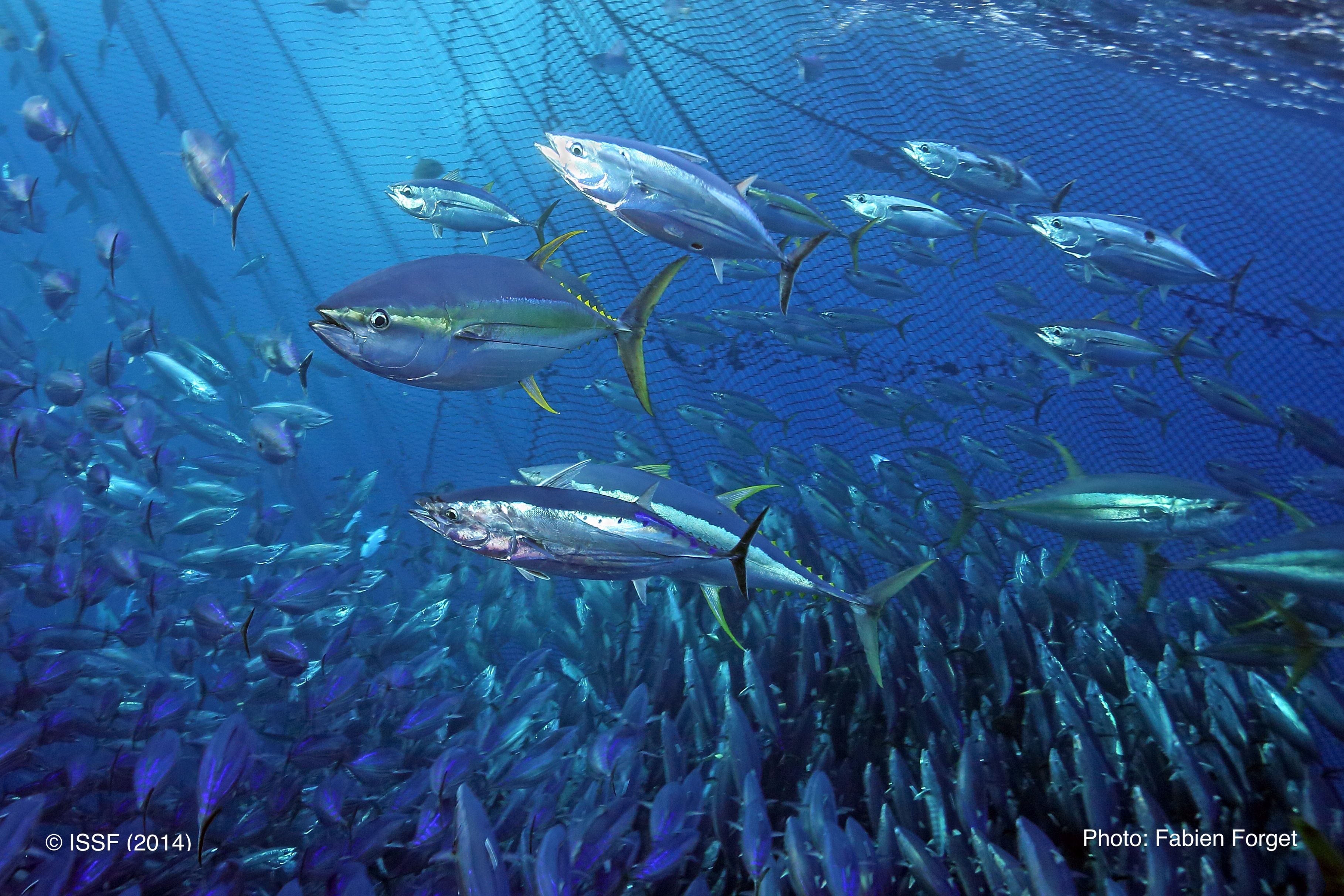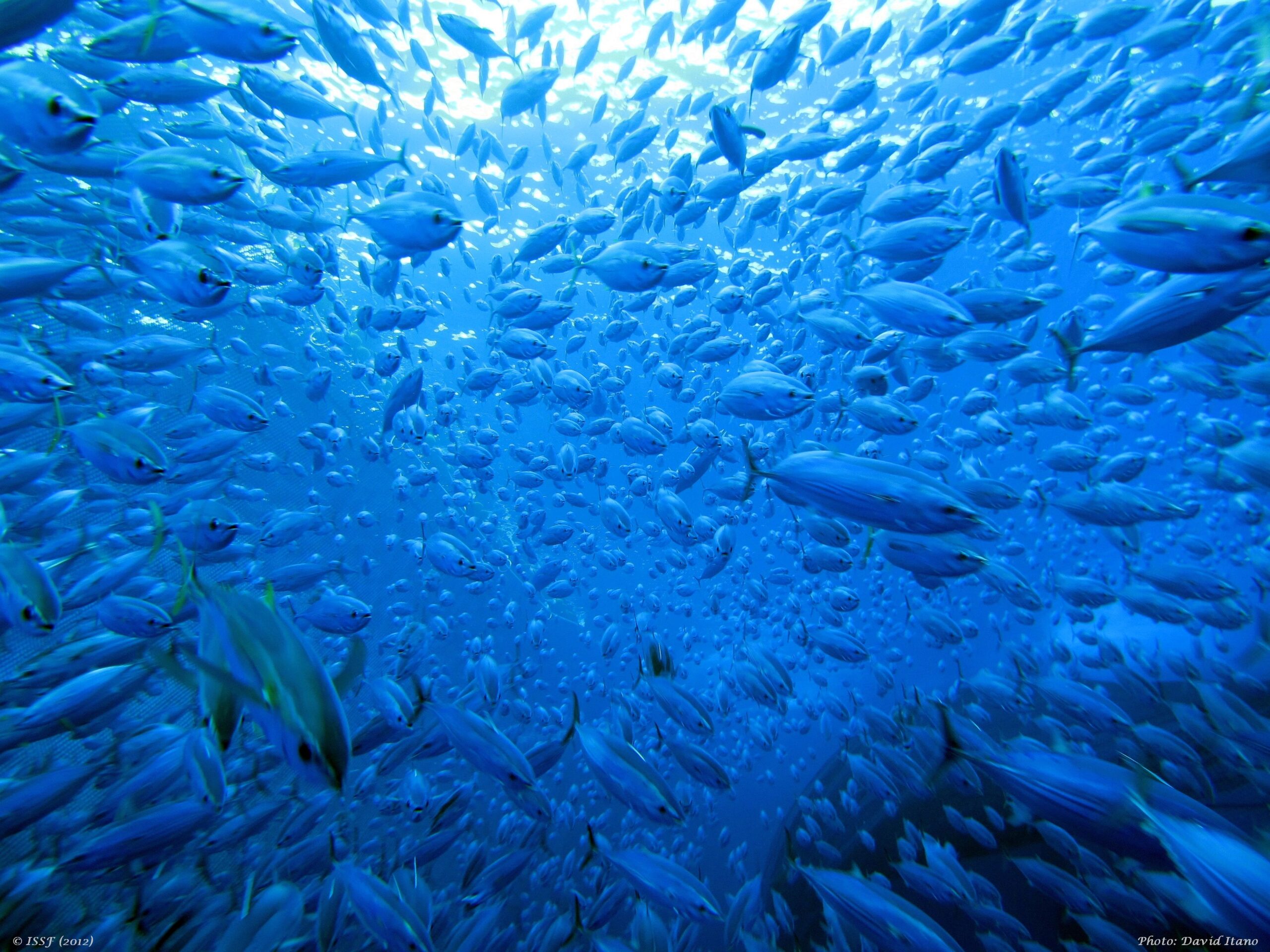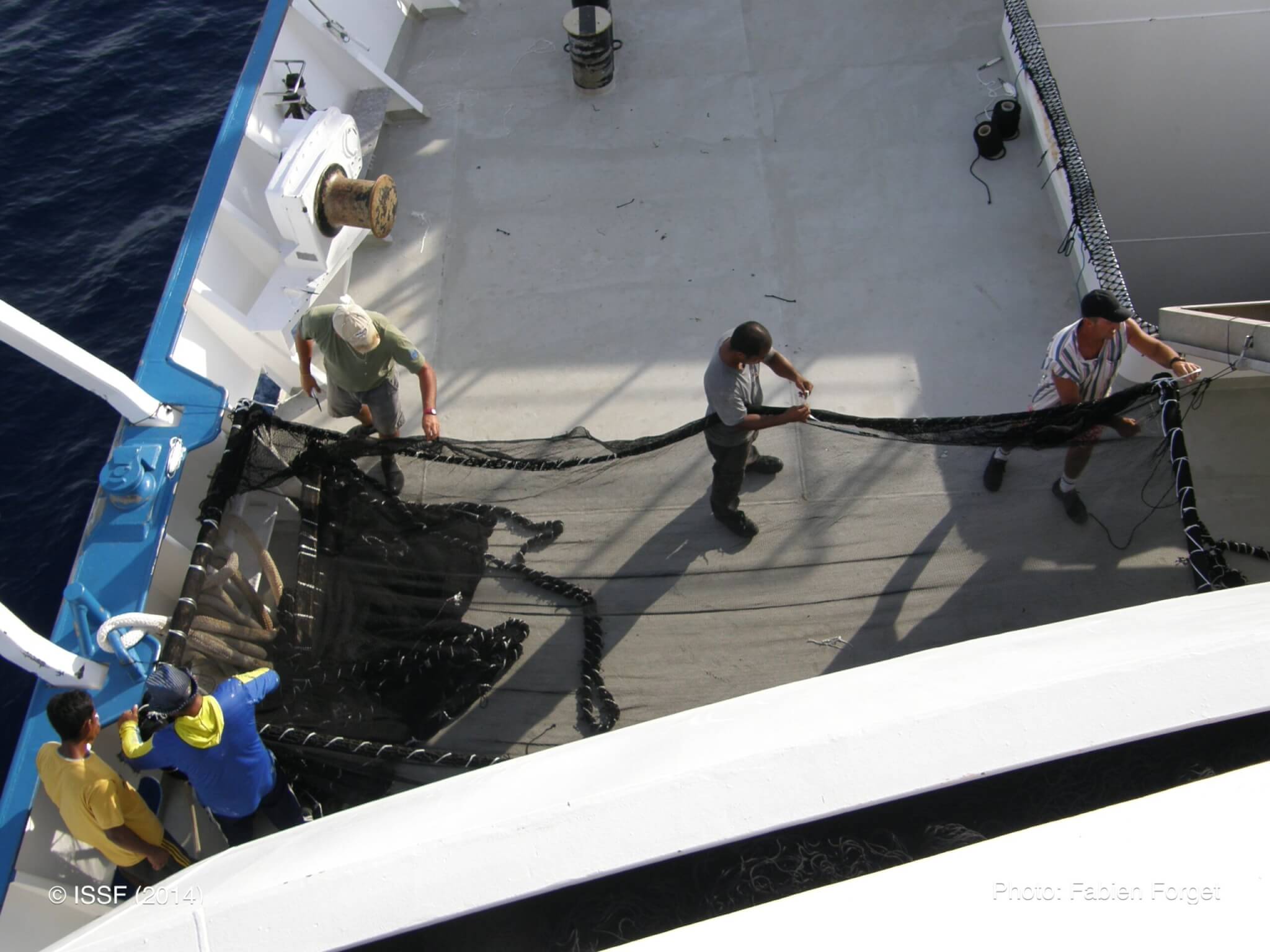
ISSF Annual Report Shows 99.1% Participating Company Conformance Rate with Science-based Conservation Measures, Highlights 2019 Efforts for Sustainable Tuna Fisheries
The International Seafood Sustainability Foundation (ISSF) released its 2019 annual report today, titled Commitment and Collaboration, which presents tuna-fishery sustainability achievements in the organization’s 10th anniversary year.
“From the beginning, ISSF’s tuna conservation work has required a one-world, one-planet perspective — and a consensus-building approach, as challenging as that is for any complex issue,” explains ISSF President Susan Jackson in the report. “The ISSF team has long appreciated that solving environmental problems means reaching across continents in the spirit of goodwill to share scientific information and resources, learn from each other’s insights and experiences, and make steady progress for the common good.”
ISSF's 2019 annual report includes video content, month-by-month highlights, and features on bio-#FAD research, #FIP outreach, and more. Share on XCommitment and Collaboration focuses on ISSF’s collaborations to identify and promote “best practices” in tuna and ocean conservation with fishers, tuna companies, retailers, and Regional Fisheries Management Organizations (RFMOs). The report also covers ISSF’s activities with environmental nongovernmental organizations (NGOs), scientific agencies and more.
Report Highlights
The interactive annual report, which includes video content and downloadable graphics, offers special features on:
- Biodegradable Fish Aggregating Device (bio-FAD) research
- Fishery Improvement Project (FIP) outreach
- Tuna stock status based on catch and abundance
- RFMO proposals and policy changes aligned with ISSF advocacy priorities
A “Highlights” section shows ISSF’s 2019 milestones month by month, including:
- The International Workshop on Mitigating Environmental Impacts of Tuna Purse Seine Fisheries, co-sponsored by ISSF and the Common Oceans ABNJ Tuna Project
- Collaborating on and promoting the NGO Tuna Forum’s first collaboratively authored “best practices” guides — on FAD management and transshipment — for RFMOs, FIPs, fisheries, and other stakeholders
- New members on the Board of Directors
- An updated Guide to Non-Entangling and Biodegradable FADs, addressing bio-FAD designs and materials for the first time
- The first ISSF Seafood Sustainability Contest, whose winners were announced in March 2020
The report also includes messages from ISSF Board Chair Luciano Pirovano and retired ISSF Board Vice Chair Dr. Bill Fox; Board, committee, and staff lists; and a financial overview.
Conservation Measures & Commitments Compliance Report
The annual report also links to the organization’s latest ISSF Annual Conservation Measures & Commitments Compliance Report. The compliance report shows a conformance rate of 99.1 percent by 25 ISSF participating companies as of March 31, 2020.
The compliance report tracks ISSF participating companies’ progress in conforming with measures like these:
- Demonstrating the ability to trace products from can code or sales invoice to vessel and trip.
- Submitting quarterly catch, vessel, species and other data to RFMO scientific bodies.
- Transactions only with those longline vessels whose owners have a policy requiring the implementation of best practices for sharks and marine turtles
- Establishing and publishing policies to prohibit shark finning and avoiding transactions with vessels that carry out shark finning.
- Conducting transactions only with purse seine vessels whose skippers have received science-based information from ISSF on best practices such as reducing bycatch.
- Avoiding transactions with vessels that are on an RFMO Illegal, Unregulated and Unreported (IUU) Fishing list.
As part of its commitment to transparency and accountability, ISSF engages third-party auditor MRAG Americas to audit ISSF participating companies to assess their compliance with ISSF’s conservation measures. MRAG Americas conducts independent auditing based on a rigorous audit protocol.
In addition to a summary report, MRAG Americas issues individual company reports that document in detail each organization’s compliance with ISSF’s conservation measures. ISSF publishes these individual company compliance reports on its website.


